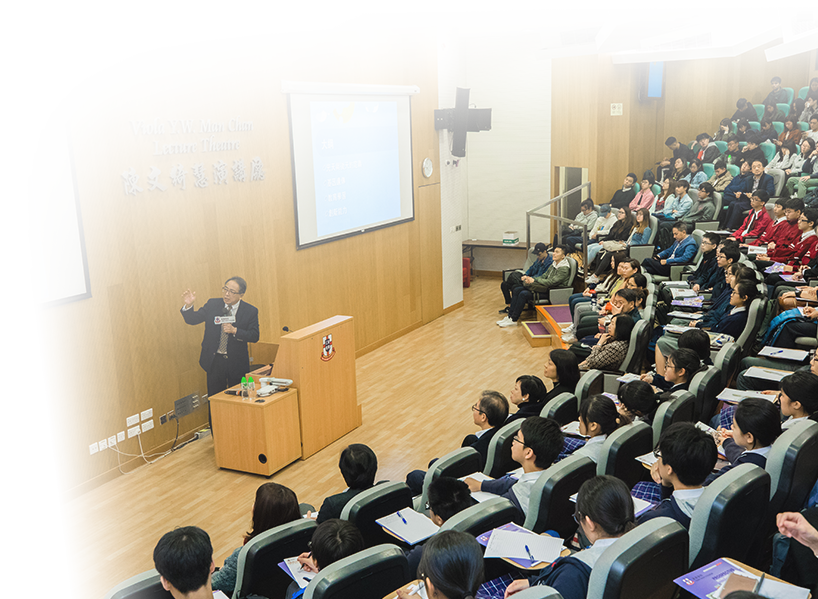

课程
-
学士学位课程
-
副学位课程文凭课程
 伙伴合作与社区联系
伙伴合作与社区联系其他资料
(只提供英文版本)
Frequently Asked QuestionsQ1What does management of social and business sustainability mean to an organisation?A1To an organisation operating in the twenty-first century, management of social and business sustainability means management of a multiple bottom line. Managing a multiple bottom line is now a necessity for most organisations, regardless of whether they are social enterprises, non-profit organisations (NPOs), or companies practising corporate social responsibility (CSR) or creating shared valued (CSV).Social enterprises solving social problems innovatively realise that they can only continue to do so if they are financially sustainable. NPOs know that creating social value in society depends on sustained sources of funding for their social programmes. Companies acknowledge that business is no longer as usual; besides generating economic value for their shareholders and customers, they need to run impactful CSR or CSV programmes that can address social and environmental issues.The different types of organisations thus need to manage a multiple bottom line by simultaneously balancing social, environmental and economic/financial objectives, opportunities and risks that are often conflicting.Q2What do students learn when they enrol in this programme?A2Students acquire theoretical and practical knowledge of how different types of organisations manage a multiple bottom line by simultaneously balancing social, environmental and economic/financial objectives, opportunities and risks. The knowledge acquired is transdisciplinary. This is because organisations now need to draw on different disciplines of knowledge and synergise the knowledge in order to achieve multiple goals simultaneously.Students take core Business Administration courses such as Management, Strategic Management, Marketing, Economics, Accounting, Finance, Statistics, and Data Management. Concurrently, they also take Social Sustainability-related courses such as Social Entrepreneurship, Social Innovation, Community Development, Corporate Social Responsibility, Non-Profit Management, Fundraising and Donor Relations, Philanthropy, and Social Impact Measurement.Q3What are the unique features of this programme?A3The courses offered by the programme emphasise experiential learning outside the classroom and application of theory in the field. Students acquire useful, practical skills such as mapping communities’ aspirations, needs and assets; using design thinking to curate innovative solutions to social problems; using futures thinking to address anticipated future problems and shape the future; and conducting social return on investment analysis to measure the impact of social programmes.Students not only learn how to run and manage social enterprises, NPOs, and companies with CSR or CSV programmes, but also learn how to identify and analyse social problems and develop effective, sustainable solutions to these problems. Beyond coursework, students have opportunities to engage in relevant work internships, carry out meaningful capstone projects, and participate in overseas study tours to appreciate how social problems are addressed in other countries.Q4Are there any similar accredited degree programmes available in Hong Kong?A4The Bachelor of Management (Honours) in Social and Business Sustainability programme is the first accredited undergraduate programme in Hong Kong that offers a combination of both core Business Administration courses and a wide range of Social Sustainability-related courses.Q5What are the career prospects for graduates of this programme?A5Graduates can embark on various alternative career pathways, given the broad range of transdisciplinary knowledge and skills they would have acquired from the programme.Graduates can work in either social enterprises, non-profit organisations, or companies practising CSR or CSV. These organisations increasingly need employees who are polymaths (i.e., employees who can synergise transdisciplinary knowledge and skills to solve complex problems). The transdisciplinary grounding of graduates of this programme thus makes them attractive hires for these organisations.Alternatively, graduates can consider starting up their own social enterprises to tackle Hong Kong’s many social issues and challenges. Additionally, graduates are able to articulate to related postgraduate programmes in local or overseas institutions.Q6Do students of this programme enjoy any scholarships and study subsidies?A6
Local students are eligible to apply for an annual subsidy of HK$31,300 (2019/2020 academic year) under the Non-means-tested Subsidy Scheme for Self-financing Undergraduate Studies in Hong Kong (NMTSS). For details, please click: https://www.cspe.edu.hk/en/nmt/index.html
Students admitted via standard entry with a HKDSE score of 14 or above (4C+1X) will enjoy a FULL scholarship after deduction of the subsidy under the NMTSS for the first year of study in this programme. An annual scholarship of HK$30,000 will be renewable for students maintaining outstanding academic achievements with cGPA 3.3 or above during the normative study period.
Programme Videos
Media CoverageDateNews Title06/08/2019 【星島日報】東華學院全新管理學學士課程 社商管理畢業生出路廣泛 05/08/2019 【明報】東華學院展開嶄新學士課程 社商管理畢業生出路廣泛 31/07/2019 【蘋果日報】東華學院掌握就業新趨勢 社商管理畢業生出路廣泛 26/07/201910/07/201903/07/201923/02/201922/02/201922/02/201922/02/201922/02/2019
课程
-

















